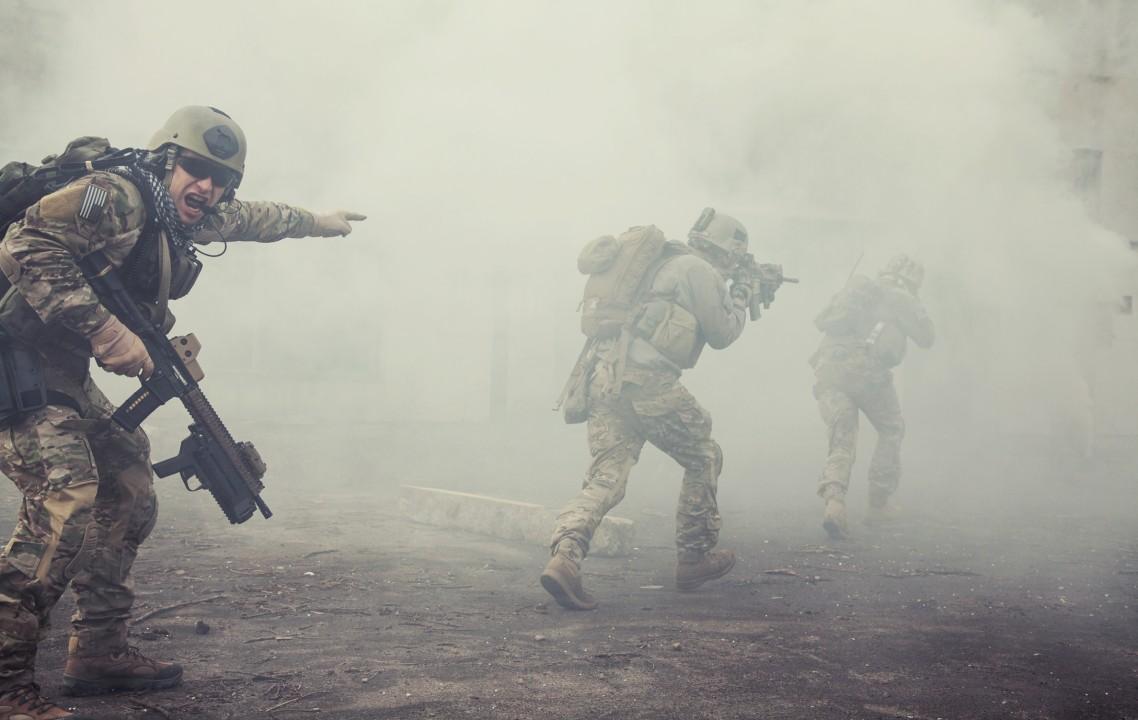We’re excited to announce the addition of Larry Kissko to our team here at One River. He joins from MAN AHL where he led their North American Client Portfolio Management effort. I met Larry in 2009 at an MFA Miami conference that I desperately wanted to escape. He did too and we peeled off for a long walk, away from the crowds. It’s been fun to watch him accomplish great things ever since. He’ll be our Head of Sales and Strategy. Thrilled to finally have the opportunity to work together.
Dusted off an anecdote from 2016 that was simply an email I sent to my One River team about what it takes to win (see below). Be back in January with full wknd notes. All the very best, E
Week-in-Review: Mon: BOJ says it sees little need to end NIRP in December, NY Fed 1yr inflation expectations drop 20bps to 3.4% but 3yr & 5y hold steady, China’s Politburo statement guides to just a ‘modest’ increase in fiscal stimulus, China CPI much weaker than exp – CPI -0.5% (-0.2%e) / PPI -3% (-2.8%e), UAE flew senior diplomats from China/Russia/UK to Egypt’s border with Gaza to further push for ceasefire, Milei warns of tough times ahead in first address as President, Zelensky appeals to US congress for add’l support, S&P +0.4%; Tue: US CPI 3.1% as exp / Core 4% as exp (ie on the screws) – services infl a bit sticker and shelter disinflation slower than exp, energy complex (Nat Gas, Crude, etc) falls on signs of oversupply as Russia’s exports reach highest levels since July, Biden publicly states that Israel is ‘making it very difficult for the world’ [to support it], Yellen doesn’t believe returning inflation to the Fed’s 2% goal will be especially difficult, Japan PPI 0.3% (0.1%e), Germany ZEW exp 12.8 (9.5e), EU ZEW exp 23 (13.8p), Brazil IPCA infl 4.68% (4.70%e), Mexico IP 5.5% (4.1%e), India IP 11.7% (10.5%e) / CPI 5.55% (5.78%e), US NFIB 90.6 (90.7e), S&P +0.5%; Wed: Fed unch as exp / Dots show 75bp cuts in 2024 (50bp exp) / Powell strikes unwaveringly dovish tone, Argentina devals ccy and sets crawling peg to weaken 2% MoM / announces large fiscal reform to end primary deficit, Brazil CB cut 50bp as exp, COP28 ends with deal calling for transition away from fossil fuels (1st time), China M2 10.0% as exp / M1 1.3% (2.0%e) / New loans 1.09T (1.3T exp), EU IP -6.6% (-4.6%e), US PPI 0.9% (1.0%e) / Core 2% (2.2%e), Russia GDP 5.5% as exp, S&P +1.4%; Thu: ECB unch as exp / Lagarde says not talking about cutting / more hawkish than Fed / announced a PEPP tapering to begin in 2H24 in smaller size than expected, BOE on hold as exp – keeps tightening bias (3 of 9 voted for add’l hike), Norges bank surprises with 25bp hike (10% priced), SNB on hold as exp but removes hawkish bias / softens FX intervention language, Kishida reshuffles cabinet to contain funding scandal – replaces 4 ministers, N. Zealand 3Q GDP -0.6% (0.5%e), Australia Emp change 61.5k (11.5k e) / Unemp rate 3.9% (3.8%e), US ret sales 0.4% (0.2%e), US init claims 202k (220k e) / Continuing claims 1876k (1879k e), US impt prices -1.4% (-2.1%e), S&P +0.3%; Fri: Fed’s Williams says it is premature to be talking about a March rate cut / mkts have overreacted, Fed’s Bostic says still need several months of data to have confidence that infl will continue to fall, ECB’s Villeroy and Muller push back against mkt’s rate cut expectations in 1H24, BoC’s Macklem pushes back on rate cuts, PBOC injects record $112b via 1y policy loans and announced renewed support for property sector, Argentina FM Caputo says plan is to work towards dollarization, Hungary blocks EU aid package for Ukraine / vows to block any future candidacy, 2 largest shippers announced avoiding the Red Sea, $5.4T of options expire – largest ever, UK cons conf -22 as exp, Indonesia expts -8.56% (-9.52%e) / impts 3.29% (-0.19%e), China IP 6.6% (5.7%e) / Ret sales 10.1% (12.5%e), Eurozone PMI mfg 44.2 (44.6e) / serv 48.1 (49.0e) / comp 47.0 (48.0e), UK PMI mfg 46.4 (47.5e) / serv 52.7 (51.0e) / comp 51.7 (51.0e), US PMI mfg 48.2 (49.5e) / serv 51.3 (50.7e) / comp 51.0 (50.5e), US Empire mfg -14.5 (2.0e), Argentina GDP -0.8% (-0.7%e), S&P unch.
Weekly Close: S&P 500 +2.5% and VIX -0.07 at +12.28. Nikkei +2.1%, Shanghai -0.9%, Euro Stoxx +0.9%, Bovespa +2.4%, MSCI World +2.7%, and MSCI Emerging +1.8%. USD rose +5.6% vs Ethereum, +4.6% vs Bitcoin, +0.3% vs Brazil, +0.1% vs Turkey, and flat vs Chile. USD fell -3.4% vs South Africa, -2.5% vs Russia, -1.9% vs Yen, -1.9% vs Sweden, -1.8% vs Australia, -1.5% vs Canada, -1.2% vs Euro, -1.0% vs Sterling, -0.8% vs Mexico, -0.7% vs China, -0.5% vs India, and -0.1% vs Indonesia. Gold +1.1%, Silver +3.8%, Oil +0.3%, Copper +1.6%, Iron Ore -3.0%, Corn -0.5%. 10yr Inflation Breakevens (EU -11bps at 1.96%, US -1bp at 2.22%, JP -3bps at 1.30%, and UK -11bps at 3.47%). 2yr Notes -28bps at 4.45% and 10yr Notes -32bps at 3.91%.
Year-to-Date Equities (high to low): Poland +49% priced in US dollars (+35.1% priced in zloty), Hungary +46.4% in dollars (+37.8% in forint), NASDAQ +41.5% in dollars, Greece +41.4% in dollars (+38.8% in euros), Mexico +33.6% (+17.9%), Italy +30.5% (+28.1%), Brazil +27% (+18.6%), Spain +25% (+22.7%), Venezuela +23.9% (+160.9%), Ireland +23.5% (+21.3%), Taiwan +23.1% (+25%), S&P 500 +22.9% in dollars, Germany +22.5% (+20.3%), Euro Stoxx 50 +22.2% (+19.9%), Denmark +21.2% (+19.3%), MSCI World +20.2% in dollars, France +19.5% (+17.3%), Sweden +18.6% (+16.8%), India +18.1% (+18.5%), Netherlands +17.3% (+15.1%), Japan +16.5% (+26.4%), Czech Republic +15.3% (+14.8%), Russia +14.2% (+40.8%), Chile +13.4% (+16.7%), Russell +12.7% in dollars, Korea +11.4% (+14.6%), Colombia +11.3% (-9.6%), Switzerland +10.7% (+4.3%), Saudi Arabia +10.4% (+10.2%), Austria +9.8% (+7.8%), Portugal +8.6% (+6.7%), Canada +7.2% (+5.9%), UK +6.8% (+1.7%), Indonesia +4.9% (+5%), Australia +4% (+5.7%), Belgium +2.7% (+0.9%), Norway +2.4% (+8.9%), Argentina +1.3% (+358.1%), New Zealand -1.5% (+0.7%), Philippines -1.7% (-1.3%), Israel -2.2% (+1.8%), Singapore -3.6% (-4.1%), South Africa -3.8% (+3.3%), Finland -6.4% (-8.1%), Turkey -6.4% (+45.1%), UAE -7% (-7%), China -7.7% (-4.7%), Malaysia -7.7% (-2.2%), HK -15.1% (-15.1%), Thailand -17.1% (-16.6%).
Anecdote (Oct 2016):
Email: [email protected]
Subject: Good Company
Hi All –
Late last night, I was reading an analysis on the state of the world economy written by a leader in our field. Being interested in discussing it further, I sent him an email, asking to get together. And with my fingers limbered up, I fired off notes to two others of similar stature. All three replied either side of 11pm. One of their personal assistants followed up shortly thereafter. The reason I’m sharing this is to provide a glimpse into the little things; the habits of three of the most successful people in our field (amongst the 100 wealthiest people on the planet). These are people who have nothing to prove to anyone but themselves. You’d think they might relax a bit, but all these little things have led them to where they are and they’re not stopping now. As they lead by example, it’s safe to assume that their teams keep pace. Their hungriest run faster still. We all work hard here. And if you ever feel a bit alone when you’re cranking late at night, early, when you’re searching for a creative solution and coming up dry, or when you’re away from your family and your spouse is a bit upset, know that in such a competitive world there’s really no other way to make it. And know you’re in good company.
Good luck out there,
Eric Peters
Chief Investment Officer
One River Asset Management
Disclaimer: All characters and events contained herein are entirely fictional. Even those things that appear based on real people and actual events are products of the author’s imagination. Any similarity is merely coincidental. The numbers are unreliable. The statistics too. Consequently, this message does not contain any investment recommendation, advice, or solicitation of any sort for any product, fund or service. The views expressed are strictly those of the author, even if often times they are not actually views held by the author, or directly contradict those views genuinely held by the author. And the views may certainly differ from those of any firm or person that the author may advise, converse with, or otherwise be associated with. Lastly, any inappropriate language, innuendo or dark humor contained herein is not specifically intended to offend the reader. And besides, nothing could possibly be more offensive than the real-life actions of the inept policy makers, corrupt elected leaders and short, paranoid dictators who infest our little planet. Yet we suffer their indignities every day. Oh yeah, past performance is not indicative of future returns.





